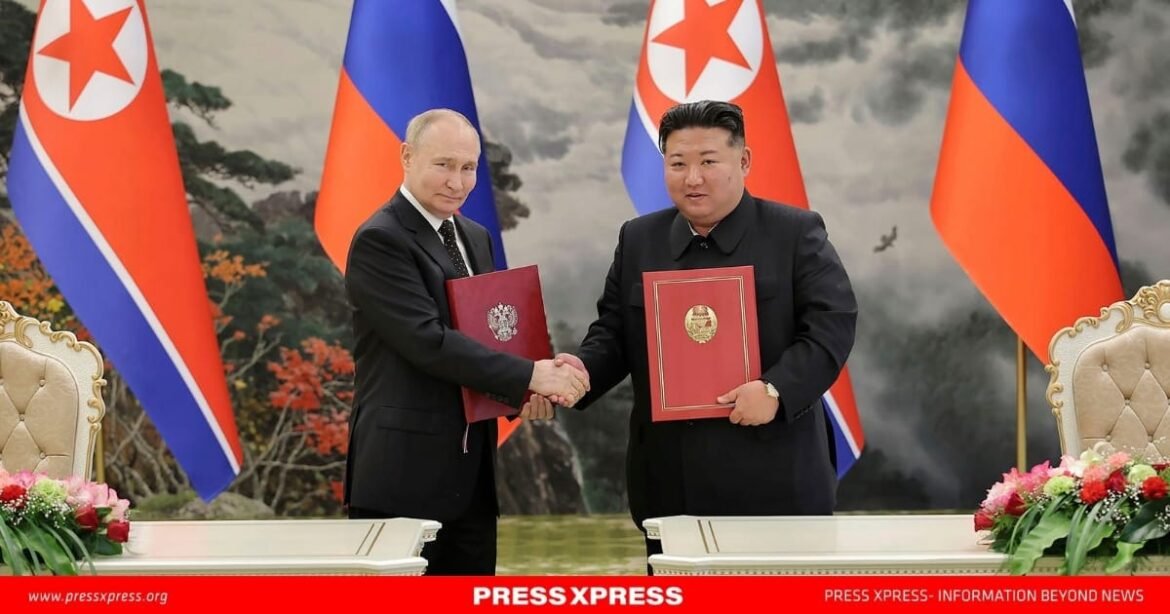…the fate of the conflict will depend on several key factors, including military strategies, international alliances, and the extent of foreign support for both Russia and Ukraine
The withdrawal of North Korean troops from Russia’s Kursk region has introduced new uncertainties into the ongoing war in Ukraine. Reports from South Korea’s National Intelligence Service (NIS) and Ukrainian military sources indicate that North Korean units have halted combat operations after suffering heavy casualties. This unexpected development raises several key questions: What does this mean for Russia’s military strategy? Will Pyongyang reinforce its troop presence in Ukraine? And how will this impact the overall trajectory of the conflict?
The North Korean Deployment and Its Consequences
Casualties and Operational Failures
The deployment of an estimated 10,000 North Korean troops was widely seen as an effort to bolster Russia’s frontlines, particularly in Kursk, where Ukrainian forces had mounted successful counteroffensives. However, battlefield realities appear to have severely hampered their effectiveness. Reports suggest that since mid-January, North Korean forces have been absent from active combat, with estimates of at least 300 killed and 2,700 injured.
This level of attrition indicates that North Korean troops may not have been adequately trained or equipped for modern warfare. Given the advanced weaponry and tactical flexibility of Ukrainian forces, North Korean units likely struggled to adapt, leading to their withdrawal.
Implications for Russia
For Russia, the loss of North Korean reinforcements represents a strategic setback. The war has already placed significant strain on Russian military resources, and the inability to maintain external troop support could force Moscow to reconsider its battlefield tactics. While Russia continues to rely on Iranian drones and munitions, the absence of additional manpower from North Korea may limit its capacity to sustain its offensives in key regions like Kharkiv and Donetsk.
Additionally, this withdrawal could expose weaknesses in Russia’s ability to coordinate and integrate foreign forces. If North Korean troops struggled to function effectively within Russian command structures, it may deter Moscow from relying on similar reinforcements in the future.
Will North Korea Redeploy Troops?
Despite heavy casualties, reports suggest that Pyongyang is considering sending additional reinforcements to Russia. Given the close ties between Kim Jong Un and Vladimir Putin, North Korea may be reluctant to abandon its military assistance. The deployment of more troops could serve multiple purposes for Pyongyang:
Strengthening Diplomatic Relations: Deepening ties with Russia could result in economic and military aid, including advanced weaponry and energy supplies.
Gaining Combat Experience: North Korea could view this as an opportunity to train its soldiers in real combat conditions, despite the high casualty rates.
Testing Military Capabilities: The war offers North Korea a chance to assess how its military strategies and personnel fare against NATO-backed Ukrainian forces.
However, sending more troops also carries risks, including further losses and potential international condemnation. If North Korea’s involvement in Ukraine escalates, it may face additional sanctions from the international community, further isolating its already fragile economy.
Impact on Russia’s War Strategy
With Ukrainian forces still holding key territories, Russia may need to explore alternative strategies, such as:
Expanding Domestic Conscription: Moscow could ramp up domestic military recruitment to compensate for the loss of foreign troops.
Strengthening Air and Drone Attacks: With troop shortages, Russia may increase its reliance on airstrikes, missile attacks, and drone warfare.
Seeking Additional Foreign Support: Beyond North Korea, Russia may look to allies such as Iran or China for further assistance.
Western Reactions and Ukraine’s Strategy
The withdrawal of North Korean troops presents an opportunity for Ukraine and its allies. If Kyiv can capitalize on this shift by launching counteroffensives or targeting weakened Russian positions, it may gain an advantage on the battlefield.
However, Ukraine is also facing challenges, particularly with the uncertainty surrounding U.S. military aid. Former U.S. President Donald Trump’s remarks about conditional aid and resource exchanges have raised concerns in Kyiv. If Washington scales back its support, Ukraine may struggle to maintain its momentum against Russian advances.
Conclusion
The retreat of North Korean troops marks a significant moment in the Russia-Ukraine war, highlighting both the vulnerabilities of Moscow’s reliance on foreign forces and the broader geopolitical dynamics at play. While Pyongyang may consider sending additional reinforcements, the effectiveness of such efforts remains uncertain. Meanwhile, Russia must adapt to this loss while facing growing resistance from Ukraine and its Western allies.
As the war continues to evolve, the fate of the conflict will depend on several key factors, including military strategies, international alliances, and the extent of foreign support for both Russia and Ukraine. The coming months may prove decisive in shaping the next phase of the war.


